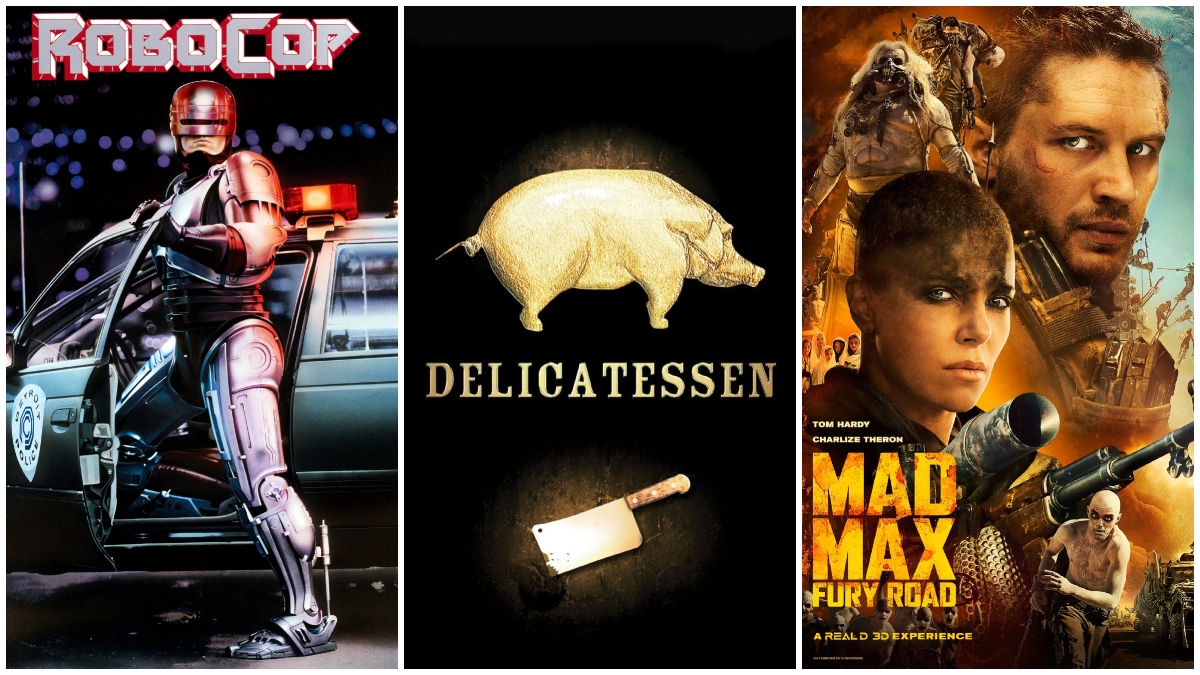From 'Metropolis' to 'Mad Max': Dystopian storytelling that wowed sci-fi enthusiasts

After watching the first season of the stunning new Argentinian dystopian series El Eternauta (The Eternaut) on Netflix, I started thinking about the appeal of dystopian storytelling in fiction — and my favourites in cinema. The idea of being trapped in a post-apocalyptic scenario for real is not exactly enticing. However, it makes for great cerebral cinema fodder, with some brilliant filmmakers (and the novelists that inspired them) coming up with stories that vividly present a world trying to rebuild itself after a devastating event. Here's a list of 10 cinematic properties that ventured into different variations of dystopia and stirred our minds and hearts in the process.
Blade Runner (1982)
While science fiction veteran Philip K Dick's "Do Androids of Electric Sheep?" wasn't honoured with a completely faithful book-to-screen adaptation as purists expected, it gave director Ridley Scott and writers David Peoples and Hampton Fancher enough ideas to power two films, one of which became a cult classic. The stunningly mounted Dennis Villeneuve-helmed sequel, Blade Runner 2049, was co-written by Fancher and Michael Green.
Children of Men (2006)
One of Alfonso Cuaron's best films, his English-language film adaptation of P.D. James' 1992 novel "The Children of Men" depicts a dystopian 2027 where the entire world has been grappling with infertility for nearly two decades until we learn that an African woman might be humanity's only hope, and whose survival becomes of utmost importance to its protagonist. The film benefitted from a gritty treatment, with some phenomenal single-take sequences that plant us in the middle of all the chaos.
The 'Planet of the Apes' franchise
The Planet of the Apes reboot series, beginning with 'Rise', followed by 'Dawn', 'War', and recently culminating in 'Kingdom', cannot be recommended without including, at least, the very first Planet of the Apes, directed by Franklin J. Schaffner and written by Rod Serling ("The Twilight Zone") and Michael Wilson. After Rupert Wyatt's 'Rise', the reboot series rose to even bigger heights when Matt Reeves ("The Batman") came on board to direct 'Dawn' and 'War'.
Total Recall (1990)
Philip K. Dick finds another mention in this list, with Paul Verhoeven's R-rated (and deservedly so) gore-heavy 1990 film adaptation fronted by Arnold Schwarzenegger. It has the distinction of being one of the rare Schwarzenegger action films that aim to be intellectually stimulating while also bringing in ample firepower, without which a Schwarzenegger film would feel incomplete. It's an immersive thrill ride replete with ideas and images that tickle the imagination of serious sci-fi enthusiasts.
Equilibrium (2002)
Never mind the largely negative critical appraisal of this Christian Bale-starrer, which has proved over the years that it has a respectable fan following — the 81% audience approval score on Rotten Tomatoes is evidence enough. It has been accused of being a Matrix wannabe by many, but that's an unfair comparison, given that even the most popular sci-fi films are influenced in some way by stories that came before. Besides, Equilibrium has enough merits, at least in the technical departments, that make it worthy of recommendation.
The "Mad Max" saga
Imagine beginning with a simple revenge story that transforms into something much, much more throughout the saga's five-film course. The 1979 film launched the careers of director George Miller and actor Mel Gibson. The relatively low-budget film may appear minuscule in comparison to the later entries, particularly Mad Max: Fury Road and Furiosa: A Mad Max Saga — or its imitations — but the concept was novel for its time. Through the saga, we see the evolution of Miller as a formidable filmmaker capable of simultaneously weaving together multiple themes and jaw-dropping action sequences, a gift rare in today's generation of filmmakers.
Delicatessen (1991)
French filmmaker Jean-Pierre Jeunet ("Amelie", "A Very Long Engagement") made his directorial debut with this dystopian dark comedy set in a post-apocalyptic France, populated with a host of quirky characters, both good and bad. The film's singular and extraordinary visual style and storytelling approach are testaments to the fact that Jeunet, who would go on to make the fourth film in the Alien franchise, operates best on his home turf. I would also suggest Jeunet's The City of Lost Children as a perfect example of surreal escapism.
Metropolis (1927)
Every time I revisit Fritz Lang's silent cinema masterpiece, I find it hard to believe it was made in 1927, considering the level of visual inventiveness and scope of futuristic ideas on offer. One look at the film, and you begin to wonder how many modern sci-fi films must've borrowed concepts from it. The immensity of the film's production design and the special effects wizardry rival the best in contemporary modern cinema. Some of its practical effects look better than anything conjured up with the aid of today's CGI.
Robocop (1987)
Sixty years after Fritz Lang presented a robot in Metropolis, screenwriter Edward Neumeier imagined the idea of a law enforcer who also happened to be a robot operating with the consciousness of a recently murdered cop, played by Peter Weller. And like its director, Paul Verhoeven, who would direct a Philip K. Dick novel three years later, Neumeier, too, has a connection with the author: the Robocop idea popped up in his mind during a visit to the Blade Runner set.
Brazil (1985)
Terry Gilliam's vision of a totalitarian future is essentially George Orwell's 1984 on acid. It's not as grim, but Gilliam's absurdist humour and striking set-pieces make the less appealing dystopian elements more palatable. One may even find a bit of Kafka in Jonathan Pryce's eccentric bureaucrat tormented by all the crazy machinery around him and enticed by recurring dreams of a beautiful woman. Despite the amount of themes and philosophical ideas packed into it, Brazil never feels overstuffed.
Entertainment